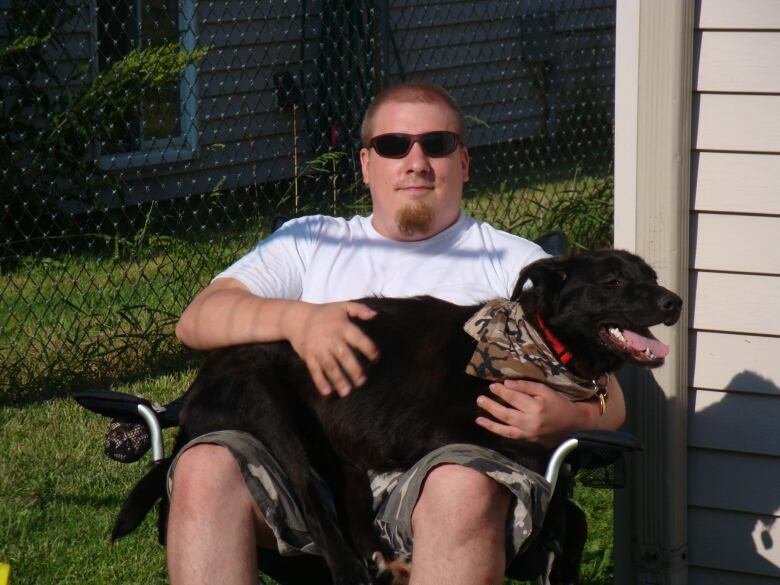The Brockway family: fighting PTSD and searching for home


Ashlea Brockway met her husband Jeremy at work. He was hired for the summer in the lawn and garden section of the Walmart in Grand Rapids, Minn. He was a friendly, quiet guy with a bright red mohawk and plans to join the marines.
Ashlea and Jeremy fell in love almost immediately.
They were married for just two weeks before he was deployed to Iraq.

Jeremy had been shaken to the core by his experiences in Iraq, and would later be diagnosed with post-traumatic stress disorder. Ashlea says that her husband was still the man she fell in love with, but that it was difficult to see under the PTSD at times.
"Any time I left the house I was afraid that I would come home and find him hanging from the railing on the stairs."
The pair did their best to keep their heads above water, figuring out how to be newlyweds while at the same time grappling with depression and PTSD. Jeremy spent most of his time alone in his room, unable to leave the house or interact with people for long periods of time.
Still an active-duty soldier, Jeremy was assigned a menial desk job — something that further isolated him and made him a target for bullying from some of his fellow service members.
After three military physicians confirmed his mental incapacity to serve overseas, Jeremy applied for a medical discharge from the marines. His request was denied, which meant he could still be sent back to the front lines of Iraq.
That's when Jeremy stumbled upon the War Resisters Support Campaign, which helps struggling American soldiers come to Canada. When he told his wife about the option to move north, Ashlea says she knew the family had no choice.
"It was a life or death situation — it was either we leave and save his life or it was going to end up in him killing himself."

That was in 2008. Today, eight years later, they're still fighting to remain in the country.
Jeremy's case is, along with a number of other war resisters, before the federal Immigration and Refugee Board.
It's unclear what direction the government is leaning, but Ashlea says she's hopeful that her family will be able to stay and continue to heal.
"I just have this tremendous hope that [Jeremy's] life will become more normal without that pressure, without that concern on him about whether he's going to be deported or go to jail. He'll continue making progress. He'll start to come out of his room more... and be able to experience life."
Listen to DNTO to hear from the modern war resisters that are fighting to stay in Canada. Saturday, April 16 at 3:00pm on CBC Radio One.